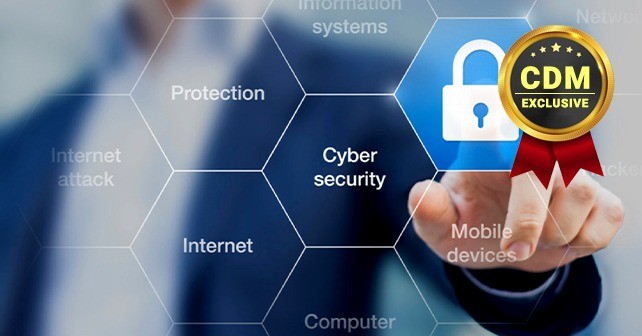By Tim Green
Cybersecurity–information technology security–is the practice of protecting computers, applications, data, and networks from illegal access.
From hacking to computer viruses, to phishing emails and calls, efficient cybersecurity is needed now more than ever; throwing up a simple firewall isn’t going to cut it these days.
With the increase in technology, there will always be an increase in viruses and hackers and the only way to protect yourself and your business is to become educated on the best practices of cybersecurity.
What You Should Be Practicing
Operating a business is definitely no walk in the park and there are so many factors that keep a business running smoothly and successfully. Unfortunately, the actions that are taken to practice efficient cybersecurity are often left by the wayside and not vigorously enforced, leaving businesses vulnerable to vicious hackers and scammers.
Don’t let that happen to your place of work; read through the list below of a few beneficial ways to increase cybersecurity within a business:
Keep Accurate Logs: It is extremely important to keep a record of all systems and applications that run help in running a business. Ideally, this log should be checked on a weekly basis in order to successfully monitor which applications are at risk of security breaching and which are running smoothly.
The great part about logs of application use is that not only will a business be able to detect a security problem from its early stages, they will also have the ability to keep track of the applications and if they are performing to the standards that are needed. It’s an all-in-one security and damage control system.
Train Your Users: Running a successful business is a difficult and timely task and putting together a meeting–on top of all the other ones for that day–that all workers can attend can be just as hard, but when it comes to cybersecurity, it’s a necessity.
A business should be trained to know how to create passwords that are strong and hard to hack, know the difference between a safe and reliable application and one that is questionable, and recognize phishing phone calls or emails–when hackers/scammers make an attempt to trick a worker into giving out a business’s information such as credit card numbers, login information, or bank account numbers. There’s one less thing to worry about when a business is staffed with trained employees.
Carefully Monitor Your Applications That Have Access to Data: Applications are kind of tricky. They are a much-needed tool that businesses use to maintain their organization and productivity in order to run a successful and professional operation, but applications also have the unfortunate ability to jeopardize any important data. In many situations, most applications have access to certain critical data just by being on the same hard drive.
Due to this, many hackers find this to be the golden opportunity to hack into and steal data. For hackers, it is much easier to gain access to data through secure applications rather than a business’s firewall. Since applications are a much-needed tool, the best thing a business can do it monitor them carefully. McAfee runs a great program–McAfee Application Data Monitor–that provides users with application-layer monitoring that prevents any and all types of threats, such as fraud and data loss.
Whether you invest in a program or hire a professional, this step is crucial for better cybersecurity.
Create Specific Access Controls: Once you have successfully found a source to monitor any applications that have direct access to important data, it is time to create specific access controls.
This is a necessary step for better cybersecurity since it will limit the number of users that have access to important data.
This step does take time since it requires those in charge to sit down and come up with a list of workers who are allowed to have access to certain applications and the data it exposes, and then further decide which workers only need the applications that are central to their work.
By taking the time to thoroughly sort through and create specific access controls, a business’s data will only become more secure and its risk of getting hacked will significantly decrease.
By practicing the above methods of cybersecurity, you’ll never have to worry if your business will take a big hit from an experienced hacker. Safeguard your business and implement the proper cybersecurity needed to ward off hackers, viruses, and phishing emails and calls.
About the Author
 Tim Green has been designing cutting edge OTT and IPTV solutions since 2005. The founder and CIO of TikiLIVE, Tim has bootstrapped the small company from a concept and turned it into an industry leader in just over 8 years. When he is not designing cool modules for TikiLIVE, he enjoys blue-water free-dive spearfishing from his front yard in the Florida Keys and throughout the Caribbean.
Tim Green has been designing cutting edge OTT and IPTV solutions since 2005. The founder and CIO of TikiLIVE, Tim has bootstrapped the small company from a concept and turned it into an industry leader in just over 8 years. When he is not designing cool modules for TikiLIVE, he enjoys blue-water free-dive spearfishing from his front yard in the Florida Keys and throughout the Caribbean.


